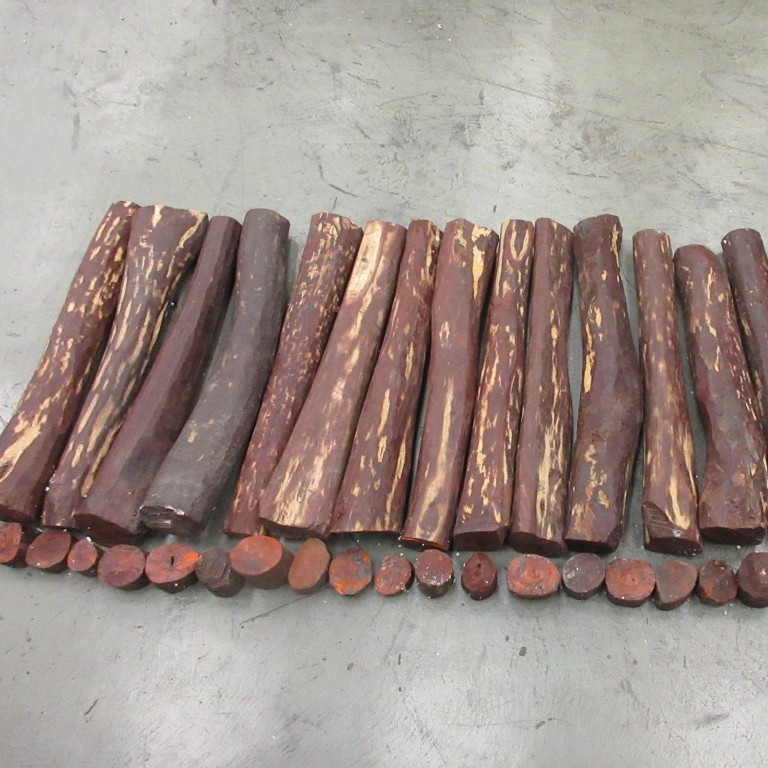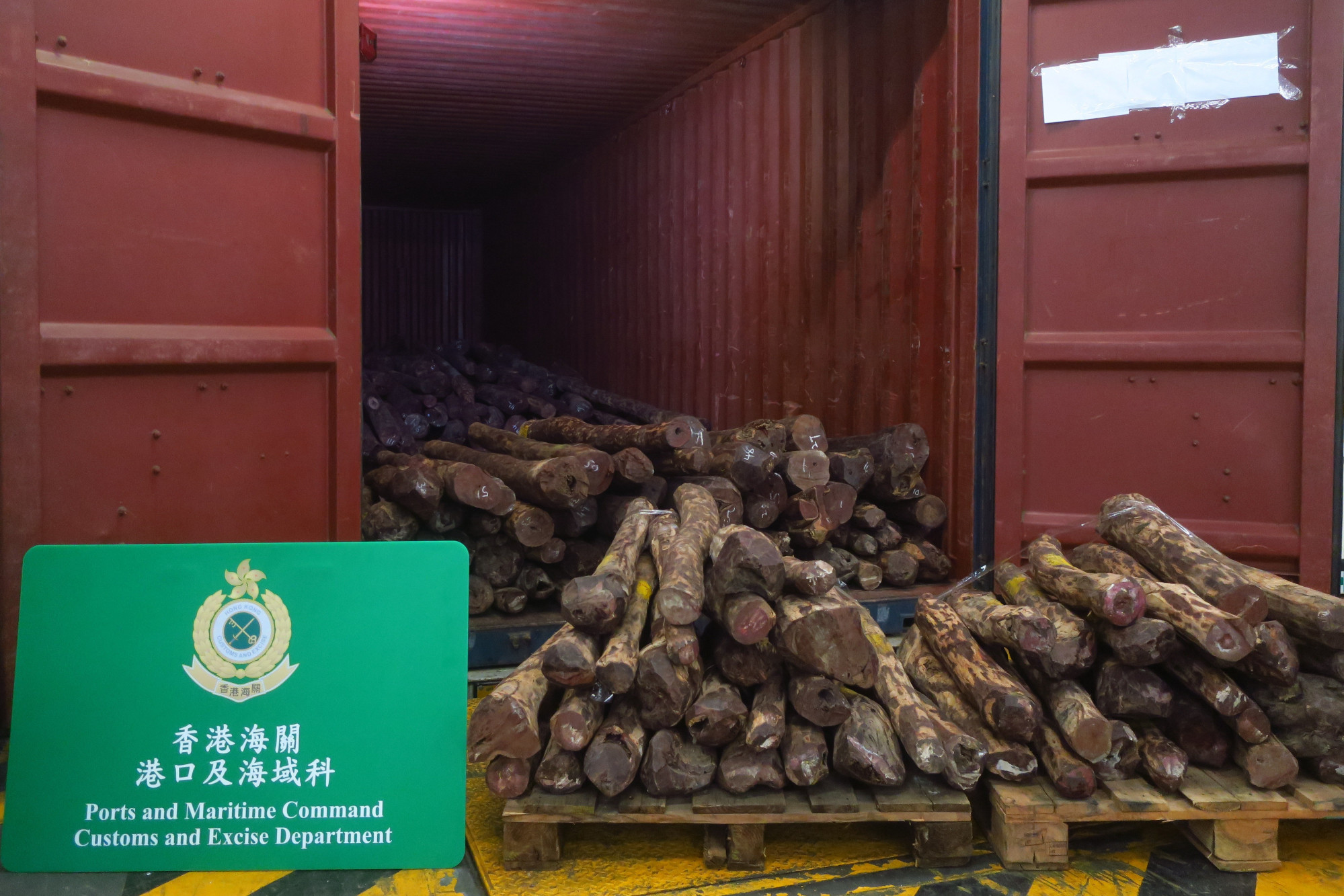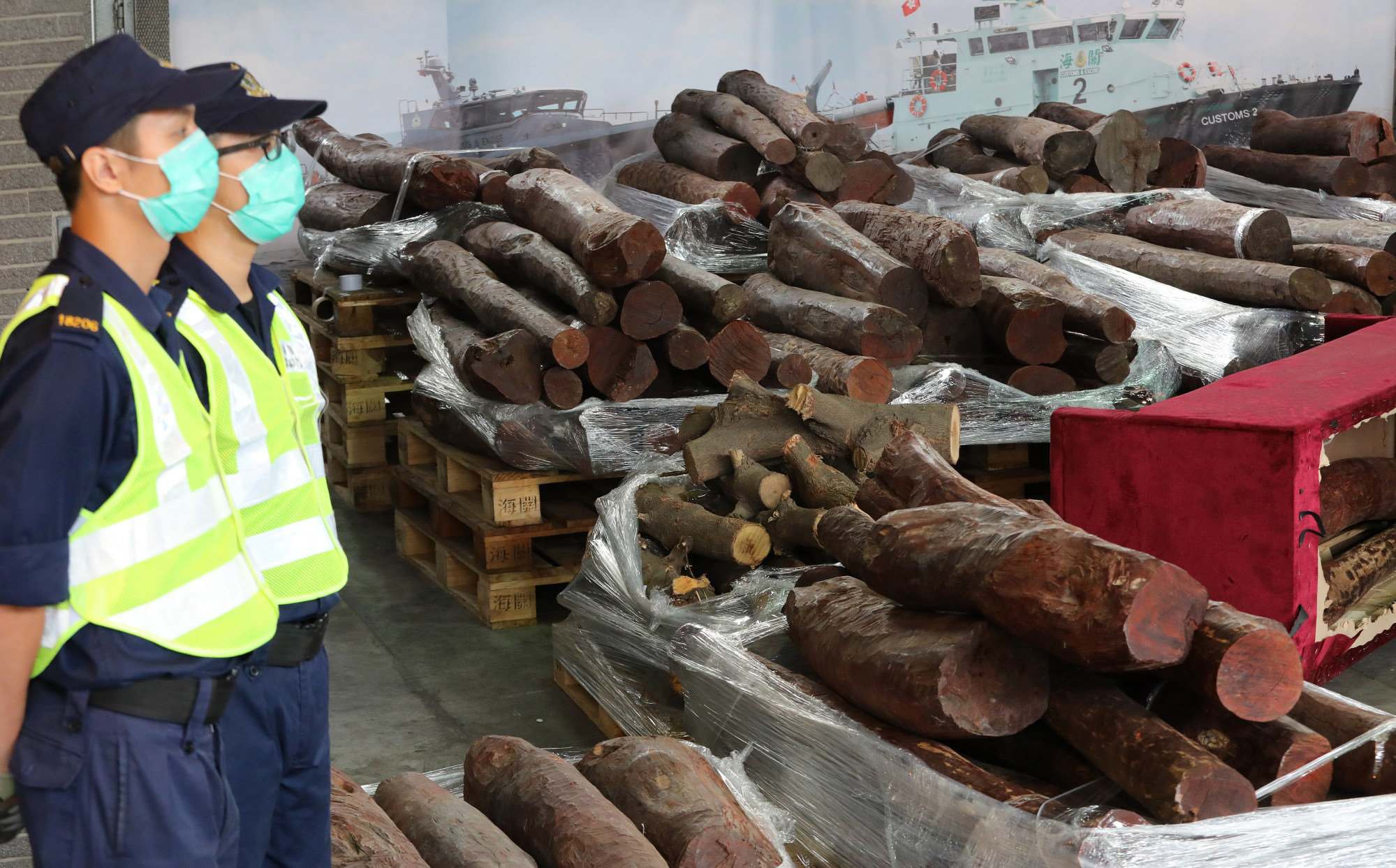
Hong Kong cracks down on smugglers of rare wood, seizing HK$39.7 million worth of shipments hidden in air cargo
- Changing tactics during the pandemic, international smugglers have started transporting protected wood by air
- Illegal air shipments of red sandalwood, known as ‘red gold’, are believed to have been headed for mainland China
Hong Kong has seized more endangered timber this year, mainly prized sandalwood and rosewood, as international criminals switched to sending their illegal cargo through the city by air rather than sea.
The change of tactics during the coronavirus pandemic has prompted more frequent inspections of air cargo at Hong Kong International Airport, according to the Customs and Excise Department.
The illegal air shipments, mainly from India and the Persian Gulf, were believed to be headed for mainland China, the Post learned.

Red sandalwood, known as “red gold”, can fetch as much as HK$5,000 (US$641) a kilogram on the underground market and is used to make luxury furniture and carvings.
Data from the Agriculture, Fisheries and Conservation Department (AFCD) showed that nearly 368 tonnes of timber worth HK$39.7 million were seized from January to November.
That was a sharp uptick from the 143 tonnes – worth HK$14.2 million – seized over the whole of last year. Officials confiscated nearly 194 tonnes of protected wood worth HK$12 million in 2019, and 94 tonnes worth HK$17 million in 2018.
Customs officers at the airport’s cargo terminal noticed in September that smugglers had switched to transporting endangered timber by air, in shipments of more than 500kg of high-value red sandalwood at a time, the department said.
Between September 30 and November 20, they seized about 8.2 tonnes of wood believed to be red sandalwood worth HK$27.6 million, hidden in five air shipments that arrived from countries such as India and the United Arab Emirates.
The consignments were declared to be furniture parts, ceramic flower pots and guitar components.
HK$10 million worth of protected wood seized in Hong Kong customs operations
Previously this year, and throughout last year, there were no seizures at the airport involving more than 500kg of high-value timber.
Red sandalwood and rosewood are listed as endangered under the Convention on International Trade in Endangered Species of Wild Fauna and Flora (CITES).
In Hong Kong, importing or exporting endangered wood without a permit carries a maximum sentence of 10 years in jail and a HK$10 million fine.
A law enforcement source said investigations indicated that most of the smuggled wood was destined for mainland China.

In the past, most customs seizures of suspected endangered wood were from sea cargo, and only small quantities were found at the airport and land boundary control points.
“Hong Kong Customs has stayed abreast of the changing smuggling trends and is fully aware that smuggling syndicates have switched to use air cargo as a major channel for smuggling in the context of the Covid-19 pandemic,” the department said in a written reply to the Post.
It added that it was taking “stringent enforcement actions on air cargo to combat smuggling of all kinds of contraband and prohibited articles, including endangered species”.
Shipment of protected wood seized by customs at Hong Kong port
The seized timber was handed over to the AFCD for identification and follow-up action.
The conservation department said it was exploring ways to dispose of the seized timber in accordance with CITES guidelines to ensure that the smugglers did not benefit in any way.
“Some of the timber has been donated to various departments and organisations for non-commercial uses such as construction, facilities enhancement, education and scientific research, while some deteriorated timber has been disposed of by dumping,” it said.

